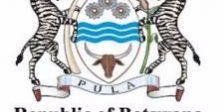Botswana’s Ministry of Environment, Natural Resources, Conservation, and Tourism announced the ban overturn on Elephant Hunting in a Facebook statement and said the decision had come after a lengthy consultation process with local authorities, affected communities, NGO’s, tourism businesses, conservationists and researchers.
The Ministry stated that the increase in elephant and predator populations as a result of the ban were having an impact on livelihoods and causing damage to livestock. Conservationists have argued that there has not been a rapid growth in the elephant population and the incidents of human-elephant conflict have not grown significantly enough to warrant the overturning of the conservation law.
Doctor Paula Kahambu, CEO of Wildlife Direct, argued on her Twitter that hunting “elephants in Botswana will not reduce human-elephant conflict” and that the concept of ‘ethical hunting’ was an “oxymoron”. Kahambu also argues that allowing villagers to shoot elephants will cause them stress and may even lead to a rise in human fatalities as conflicts become exacerbated.
The anti-hunting bans were first imposed in 2014 under President Ian Khama, who was known as a passionate conservationist.
President Mokgweetsi E.K. Masisi assumed the presidency in 2018 and began the consultation process to overturn the hunting ban — Masisi also put an end to the anti-poaching “shoot to kill” policy that allowed the military to kill suspected poachers.
Botswana is home to roughly a third of Africa’s remaining savanna elephants (approximately 130,000 individuals) as the population largely escaped the ivory slaughters that affected populations in other regions of the continent.







